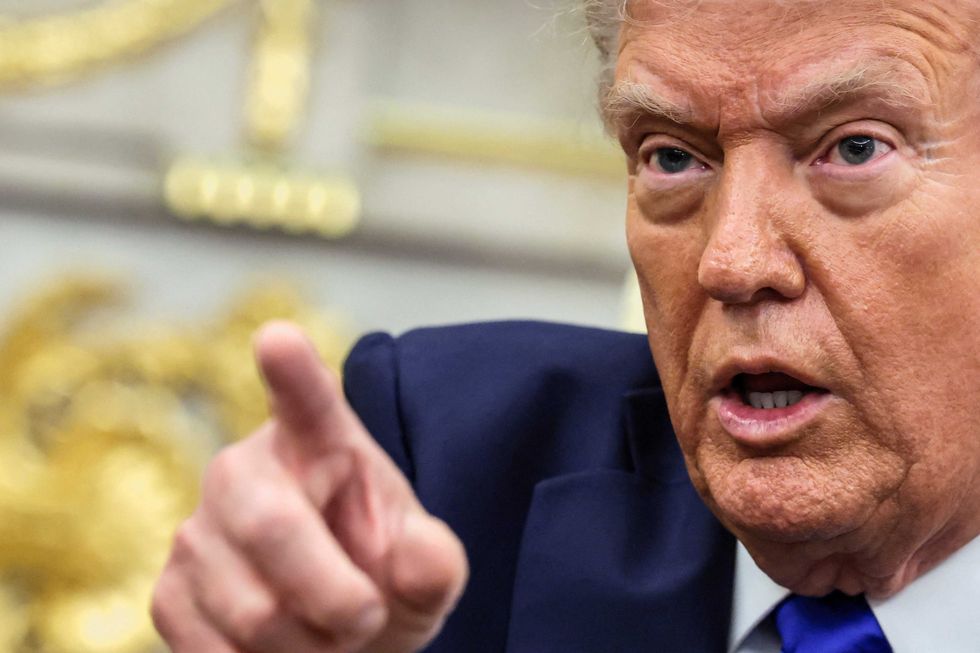Top Stories
Trump Orders Military Strikes, Raises Fears Over Civilian Casualties

UPDATE: The United States is escalating military actions against suspected drug smugglers, raising serious concerns over the potential for civilian casualties. President Donald Trump has recently ordered military strikes on vessels he deems “enemy combatants,” claiming they pose a threat to national security.
In a controversial move, Secretary of Defense Pete Hegseth has positioned warships, including an aircraft carrier, off the coast of Latin America. Reports indicate that 10 boats have been bombed, with a death toll reaching 43 individuals. Notably, these actions are being taken without a formal declaration of war or congressional approval.
As of now, neither Trump nor Hegseth has provided any evidence linking these vessels to drug trafficking operations or ties to the group Tren de Aragua, which Trump has labeled a terrorist organization. Critics argue that this approach violates both domestic and international law, which prohibits targeting civilians who are not directly engaged in hostilities, regardless of their suspected criminal activities.
Historically, the U.S. Coast Guard addressed maritime drug smuggling through arrests and prosecutions, a method that allowed for judicial oversight. However, Trump’s military strategy marks a drastic shift, where suspected drug dealers are being summarily executed without any judicial process.
Trump asserts that his military actions are justified, claiming that he has determined the vessels are involved in drug trafficking and that such activities constitute an armed attack on the United States. This rationale poses alarming implications; if Trump can label suspected drug smugglers as “enemy combatants,” could he extend this classification to political opponents or dissenters?
In a speech delivered on September 30 to military leaders, Trump hinted at using military force against what he refers to as the “enemy within,” targeting domestic critics, activists, and government officials. This rhetoric follows his controversial deployment of troops to cities like Washington, D.C., Los Angeles, and Chicago, often against the wishes of local leaders.
Currently, the Immigration and Customs Enforcement (ICE) agency holds over 59,762 detainees, including U.S. citizens wrongfully detained under questionable circumstances. The agency has faced scrutiny for its mass arrests, including those of elected officials and even a disabled veteran.
As these developments unfold, the question looms: How close are we to a scenario where Trump orders the military to act against perceived domestic opponents? This unprecedented situation raises urgent ethical and legal concerns that could reshape the landscape of American governance.
Stay tuned for further updates as this situation continues to develop. The implications of these military actions could have lasting effects on U.S. policy and civil rights.
-

 Science6 days ago
Science6 days agoInventor Achieves Breakthrough with 2 Billion FPS Laser Video
-

 Top Stories1 week ago
Top Stories1 week agoCharlie Sheen’s New Romance: ‘Glowing’ with Younger Partner
-

 Entertainment1 week ago
Entertainment1 week agoDua Lipa Aces GCSE Spanish, Sparks Super Bowl Buzz with Fans
-

 Business1 week ago
Business1 week agoTyler Technologies Set to Reveal Q3 Earnings on October 22
-

 World1 week ago
World1 week agoR&B Icon D’Angelo Dies at 51, Leaving Lasting Legacy
-

 Entertainment1 week ago
Entertainment1 week agoMother Fights to Reunite with Children After Kidnapping in New Drama
-

 Health1 week ago
Health1 week agoCurium Group, PeptiDream, and PDRadiopharma Launch Key Cancer Trial
-

 Health1 week ago
Health1 week agoCommunity Unites for 7th Annual Into the Light Walk for Mental Health
-

 Entertainment1 week ago
Entertainment1 week agoRed Sox’s Bregman to Become Free Agent; Tigers Commit to Skubal
-

 Top Stories2 weeks ago
Top Stories2 weeks agoDisney+ Launches Chilling Classic ‘Something Wicked’ Just in Time for October
-

 Science1 week ago
Science1 week agoNorth Carolina’s Biotech Boom: Billions Invested in Manufacturing
-

 Health1 week ago
Health1 week agoNorth Carolina’s Biotech Boom: Billions in New Investments









